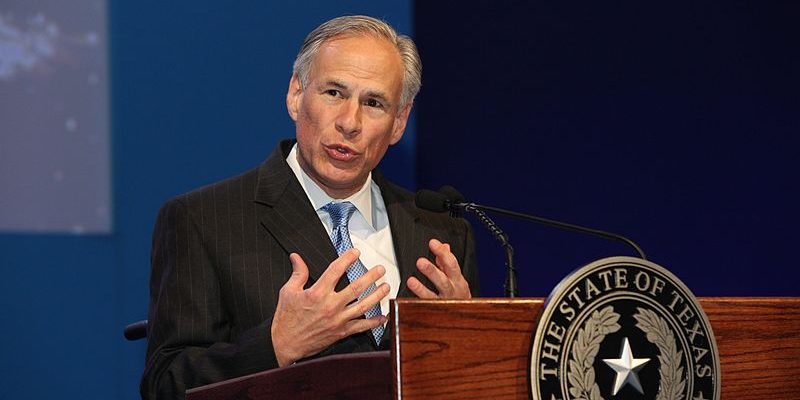After Gov. Greg Abbott extended the state emergency order through mid-May, and announced additional resources to slow the spread of the coronavirus and help some small businesses, several leaders in Texas say he isn’t leading and is killing the tenth-largest economy in the world.
In Texas as in other states, the number of unemployment claims filed in March 2020 was greater than the total claims filed in all of 2019.
Abbott’s office says he plans to make an announcement Friday about a new task force and a plan to begin to reopen the economy and get some people back to work.
In the meantime, Abbott announced the state’s Public Safety Office will provide $38 million in federal funds to local governments and that $50 million in funding for small business loans is now available.
Tarrant County Republican State Rep. Matt Krause sent a letter to the governor offering recommendations to get Texas up and running again. He posted highlights of his letter on Facebook, which include asking the governor to remove distinctions between essential and non-essential businesses, and ending the prohibition on public gatherings, including religious services and public parks. Krause says people should still follow social distancing and CDC guidelines. He said shelter-in-place guidelines should be kept for individuals with compromised immune systems and who are 65 years old or older.
State Rep. Mike Lang, R-Granbury, also offered recommendations in a letter to Abbott, similar to Krause’s, arguing the governor should also reopen restaurants, gyms, salons and similar businesses, and all waived regulations made under executive orders be continued until the 87th Texas Legislature convenes.
Regulations that the state and local governments waived during the coronavirus response shouldn’t be reinstated, Texas Public Policy Foundation (TPPF) also recommends in its proposal to get Texans back to work. Chuck DeVore, TPPF’s vice president of National Initiatives, asks, “If the government regulations that have been suspended “don’t make sense now, why would they make sense outside of a pandemic?”
State Rep. Tony Tinderholt, R-Arlington, said state government spending must slow or it will only make the economy worse, in a column published by The Texas Scorecard.
“At a time when the average American is evaluating their personal budget for any unnecessary spending, so should our governments of Texas,” he said.
Harsher criticism of Abbott comes from Don Huffines, a Dallas-area businessman and former state senator, who argues that “the governor has effectively shut down the 10th-largest economy in the world,” in an op-ed for the Texas Scorecard.
Huffines says the governor’s response has been disproportionate to the health crisis. As of April 14, 318 people have died out of 29 million Texas residents, a 0.0000109 percent total fatality rate, which does not necessitate a government shutdown, he argues.
“Fear of the virus is real and understandable, but being unemployed and financially destitute is even more real and consequential,” Huffines said. “Most Texans live by each paycheck and are angry and panicked about their financial security. The unintended consequences of the destruction of the Texas economy are almost unimaginable.”
Local leaders argue the shutdown is necessary to prevent the spread of the virus and the death toll would be higher if a quarantine had not been put in place.
Huffines also criticized the governor’s silence over religious freedom issues. In an April 1 press conference, Abbott said that local orders cannot deny what the executive order allows, including in-person religious services that abide by social distancing measures.
“However, to the extent that there are things that are not mentioned in the executive order, it still gives local jurisdictions the latitude to establish their own rules,” Abbott said.
On March 19, the governor said, “There was nothing specific in the executive order about churches because there is freedom of religion here in the United States of America,” while also not overruling local governments’ prohibitions of in-person worship services.
“Yet when local leaders like Judge Linda Hidalgo from Houston and Dallas Judge Clay Jenkins defied him and issued orders specifically closing down churches, Abbott said nothing,” Huffines added.
Last week, a Houston-based CEO of health and wellness centers, and several pastors, sued Harris County Judge Linda Hidalgo, arguing her emergency order banning church services was unconstitutional.
The governor’s office has not weighed in on the matter.
This article was first published by The Center Square.
Advertisement
Advertisement

